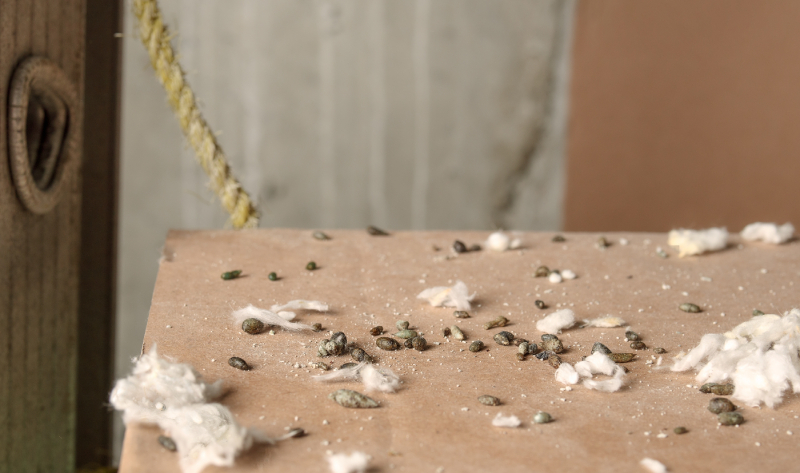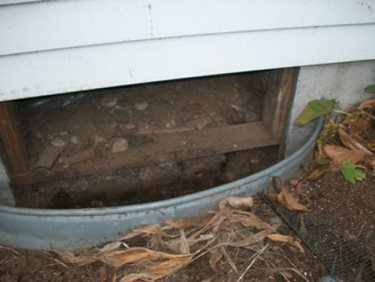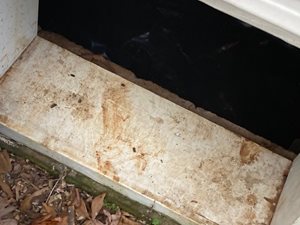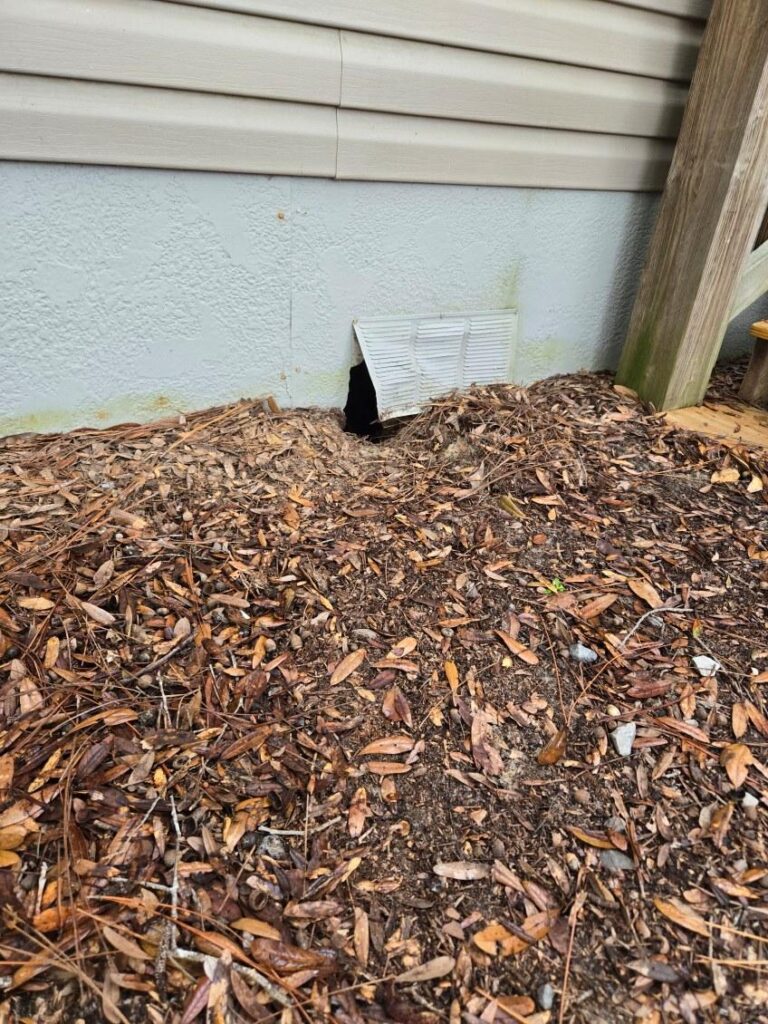Basements have ideal conditions for pests and wildlife. Basements offer shelter from predators and harsh weather. The damp environment creates the perfect breeding ground for many pests, including cockroaches, silverfish, and certain types of ants.
Living in your basement also provides pests easy access to food and water. Pet food, crumbs on the counter, open packages within your pantry, and leaky pipes become an easy and regular source of sustenance for these basement pests.
Common Basement Bugs
There are more than 100 kinds of bugs living in the average home. The vast majority of them are tiny and harmless. Occasionally, our homes become infested with basement bugs such as crickets, cockroaches, spiders, earwigs, centipedes, and millipedes that are harmful to health and homes and require removal.
Some bug infestations are easier to detect than others. Here are some signs to look out for:
- Fecal droppings near where insects are finding food or nesting
- Stained or damaged clothing
- Egg casings in upholstery or cardboard boxes
- Musty smells
- Seeing large numbers of insects, such as ants or flies
- Webs made by spiders, carpet beetles, or clothes moths
- Waking up with bites, which could indicate bedbugs
While these small critters seem harmless enough, basement pests can do structural damage to your home. There are also health risks from food contamination, bites, and feces that transmit disease, cause skin irritations, and degrade air quality, which, in turn, causes allergic reactions and asthma.
Common Nuisance Wildlife in Basement
Bugs are not the only pests that find basements an attractive place. Critters, like those you might find outdoors, such as gophers in the garden, also appreciate the shelter, food, safety, and water accessible to them in basements. Rats, mice, raccoons, opossums, and skunks are common, but you can even find burrowing animals, such as moles, in a basement.
Rats and Mice in the Basement

Small rodents such as rats and mice in the basement are common, especially as the season changes to colder weather. Unfortunately, these rodents reproduce quickly, so one or two can quickly turn into a destructive and unhealthy infestation.
Raccoons in the Basement
Unlike small rodents that can squeeze through tiny gaps, a raccoon will identify a vulnerability and rip a hole to get in, as they are quite agile and strong. And, unlike rodents that will find all their needs fulfilled within your home, a raccoon in the basement will venture outdoors to bring food indoors to her kits.
Opossums in the Basement
Opossums are nocturnal creatures that often seek shelter in basements and crawl spaces. They will build nests in quiet, undisturbed areas like basements to raise their young. The dark, secluded nature of a basement makes it an ideal denning location.
Skunks in the Basement

Skunks often seek out dark, secluded spaces to establish their dens, and a basement can provide an ideal environment. The basement may offer protection, warmth, and a quiet place for a skunk to raise its young. Skunks are adept at finding and exploiting small openings and cracks in a home’s foundation, walls, or crawl spaces. They may squeeze through gaps around pipes, vents, or loose boards to gain access to the basement.
Skunks are naturally curious animals and may simply stumble upon an opening leading to a basement while exploring their surroundings. It is not uncommon for a skunk to fall into a window well and either get stuck or get inside your basement or crawlspace.
While mostly non-aggressive and shy, you do not want to approach a skunk, as they will spray when they feel threatened. And, even if a skunk in your basement doesn’t spray, they naturally have a musky scent that will create an unpleasant odor.
Snakes in the Basement
Basements and crawl spaces are moist, quiet, and damp, which makes them very attractive nesting sites for snakes. Snakes are particularly drawn to basements and crawlspaces because rodents are often in basements too.
Dead Animal in Basement
If you smell a putrid odor, an animal might have died in your basement. Typically an animal does not die in plain sight; they usually go somewhere to hide. The multitude of hiding spots in a basement can make it difficult to find the carcass. Also, if you have attempted DIY wildlife removal or rodent trapping but have not checked the traps, you might have caused this problem. Do not approach! A dead animal can spread diseases. call a professional to remove it and provide professional clean up and sanitization.
How to Identify Pests in Basements
It can be tricky to identify what is in your basement, short of seeing the critter. Rats and mice look alike in many ways. Raccoons, opossums, and skunks are more easily identified. Each of these animals leaves clues and signs from which they can be identified.
Basement pests can often be identified by their feces, the type of damage they create, and the sounds you hear. If you have mice or rats, you will see their feces and urine on kitchen countertops and in your pantry. A skunk will be much quieter in your basement than an active raccoon or a clumsy opossum.
Raccoons are quite vocal. They make sounds that range from chirps and whistles to growls and screeches. Skunks will make purring and chirping noises when content. Growling and hissing are their defensive sounds when threatened. Opossums are also most vocal when threatened and can let out a very loud and high-pitched shriek when confronted. One of their most common vocalizations is hissing.
Signs of pests in your basement include:
- Feces and urine
- Gnawed wood, wiring, and drywall
- A mess made by tearing apart insulation, fabric, and cardboard for nesting materials
- Animal tracks near entrances

Problems Caused by Basement Pests
Rats, mice, raccoons, skunks, and opossums all cause damage and pose health risks that make it imperative to call wildlife control as soon as you’re aware of the problem.
Basement pests can carry and transmit diseases such as leptospirosis, salmonella, and rabies, as well as parasites such as fleas, ticks, and mites, which can create a secondary infestation. Raccoons, skunks, and opossums can also cause injury to people and pets if confronted.
Stored clothing, books, and furniture are in danger of destruction by nuisance animals and basement bugs. Mice, rats, and raccoons will also create a fire hazard because they like to gnaw on electrical wires.
Preventing Pests & Maintaining a Pest Free Basement
No house is impenetrable to outdoor wildlife and insects. As natural habitats are diminished or altered by urbanization or agriculture, wildlife turns to the homes, commercial buildings, and retail establishments of humans to seek the necessities they need to survive.

To keep pests and wildlife infestations out of your basement, follow our tips:
- Seal all entry points like cracks and gaps in your home.
- Keep clutter to a minimum and clean the basement regularly.
- Store important items in tightly sealed plastic containers rather than cardboard.
- Eliminate outdoor food sources that attract them to your property. Seal trash cans, bring pet food and water indoors, and eliminate bird feeders.
- Cut back trees and branches that are close to your home to eliminate cover for them.
- Use Dehumidifiers: Keeping humidity levels in check will discourage pests who like damp areas, like termites and silverfish.
- Maintain proper ventilation and humidity control to discourage pests like cockroaches, termites, and rodents that thrive in moist conditions.
When Should Homeowners Call Professional Pest Control Services
Homeowners should consider calling a pest control company at the first sign of pest infestations or nuisance wildlife problems. Something is attracting these pests into your basement, and it will continue to be a problem until you solve it. Nuisance wildlife (and certain bugs like termites) damage your home. The longer it is ignored, the more damage is done.
There are plenty of hiding places in a basement so pests and animals can usually avoid detection. A professional will identify all entry points, all damage, and other areas in need of cleanup.